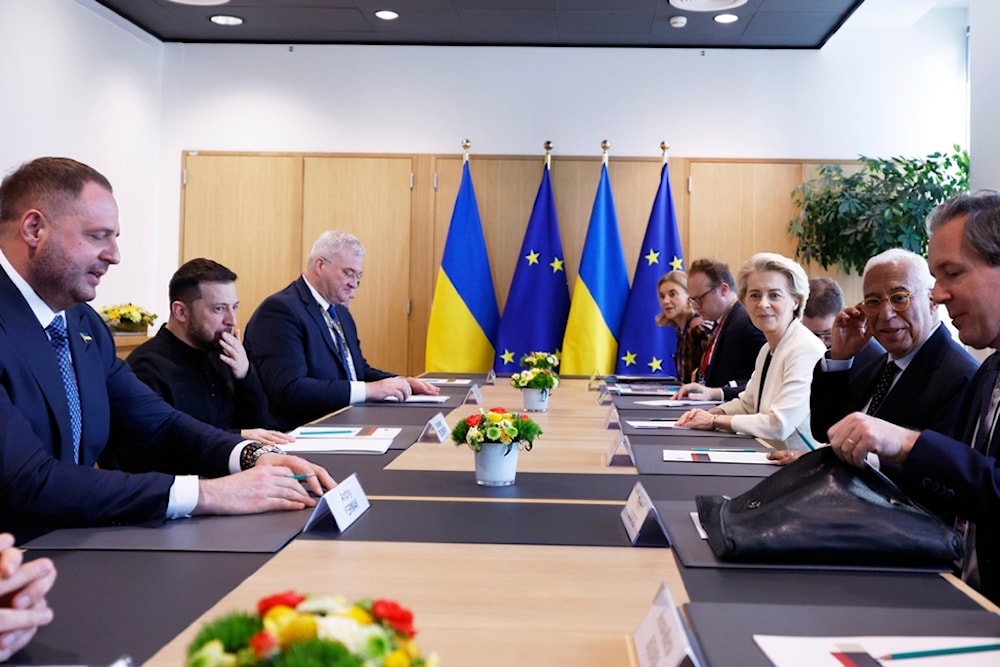EU launches ReArm plan, focuses on air defense, precision weapons
This move comes as part of a broader strategy known as ReArm Europe, an initiative aimed at significantly boosting the EU's defense capabilities while reducing reliance on external allies.
-

European Council President Antonio Costa, second right, and European Commission President Ursula von der Leyen, third right, meet with Ukraine's President Volodymyr Zelenskyy, second left, during a round table meeting at an EU Summit in Brussels, Thursday, March 6, 2025. (AP)
The European Union is ramping up efforts to develop its military-industrial sector, drawing insights from the Ukraine war. A statement issued following a European Council meeting on Thursday outlined key areas for defense investment, particularly in air defense, advanced drone technology, and precision-guided weaponry.
According to the European Council's conclusions, the bloc is focusing on strengthening its military capabilities in coordination with NATO and the European Defence Agency. The document specified that priorities include air and missile defense, long-range artillery, missile stockpiles, and anti-drone technologies.
"[The European Council] identifies the following first list of priority areas for action at EU level in the field of capabilities taking into account the lessons learned from the war in Ukraine, in accordance with the work already done in the framework of the European Defence Agency and in full coherence with NATO: air and missile defence; artillery systems, including deep precision strike capabilities; missiles and ammunition; drones and anti-drone systems…" the statement read.
This move comes as part of a broader strategy known as ReArm Europe, an initiative aimed at significantly boosting the EU's defense capabilities while reducing reliance on external allies. Under this plan, EU leaders have proposed unlocking up to €800 billion to finance military advancements, primarily through defense loans, budget repurposing, and private capital mobilization. The European Investment Bank (EIB) may also lift restrictions on lending to defense firms to support this push.
European Commission President Ursula von der Leyen has described this as a necessary response to "a clear and present danger" facing the region, marking a shift in the EU's traditional defense posture. The initiative also aligns with recent calls from the US for Europe to take greater responsibility for its own security, especially amid concerns about potential shifts in American foreign policy under a future administration.
"Europe is ready to assume its responsibilities.
— European Commission (@EU_Commission) March 4, 2025
ReArm Europe could mobilise close to €800 billion for a safe and resilient Europe.
This is a moment for Europe. And we are ready to step up."
— President @vonderleyen on the defence package pic.twitter.com/OiE8kH8FnK
Despite general support for these measures, divisions remain among EU member states. Hungarian Prime Minister Viktor Orban notably refused to endorse the European Council's statement backing Ukraine, signaling ongoing fractures within the bloc over the extent of military support and defense spending.
Meanwhile, Ukrainian President Volodymyr Zelensky met with EU leaders during the summit, stressing the urgent need for additional military aid and coordinated diplomatic efforts. Zelensky also reiterated that immediate steps—such as a ceasefire and prisoner exchanges—could help establish basic trust toward a future peace settlement with Russia.

 3 Min Read
3 Min Read









